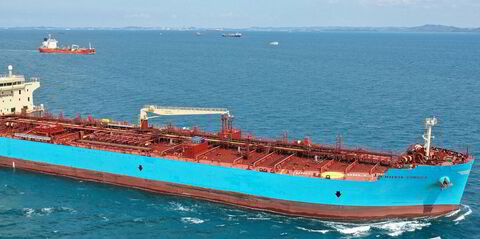There’s little immediate prospect of an end to the world’s most difficult geopolitical struggles. So with an increasingly divided global fleet, trade routes effectively closed off and polarised opinions, what happens next?
It’s long been clear that Russia’s invasion of Ukraine, and the Houthi attacks in the Red Sea, have had profound impacts on shipping far beyond the rerouting of cargoes, surging freight rates and the market-skewing impact of sanctions.
The reverberations are rippling across the full life cycle of vessels. Our reports this week highlight the favourable economic conditions across many sectors, attributable in part to the dislocations in trading routes caused by war.
The spike in sale prices of tankers since 2022 has brought windfalls for some owners, while the complications of scrapping blacklisted vessels have left recyclers concerned about getting caught up in the sprawling sanctions programmes of Western countries when those already ageing ships come to the ends of their lives.
And Western governments continue to pile on sanctions. Another 10 SCF Group fleet vessels were blacklisted by the UK on Wednesday. And sanctions are complicated and expensive to unravel and work with. Shipowners complain about 1,200 pages related to European Union sanctions alone after repeated negotiations, rewrites and updates.
Many owners took positions in the immediate aftermath of the invasion not to get involved in Russian trade, price-capped or otherwise. But some have, and many more have benefited from inflated values for ships that have eventually turned up in shadow fleets.
It has created the conditions for the continued growth of a functioning shadow fleet, with opaque insurance and ownership. It is a key factor in creating a divide between “white, grey and dark” fleets akin to rival forces from the Star Wars movie franchise, Mark O’Neil, the CEO of maritime services group Columbia told a Capital Link conference in London.
Who comes out on top between the Rebel Alliance and the Galactic Empire still has to run its course. Of most concern to shipping leaders is that one of the casualties picked up along the way could be the painstakingly built international global order that governs safe and lawful conduct on the seas.
The concept of a global law of the seas — developed over centuries before coming together 30 years ago in a United Nations convention — is under threat like never before, according to the secretary general of the International Chamber of Shipping, Guy Platten.
What concerns O’Neil is a collision involving a shadow fleet tanker where those laws cannot be effectively applied. “Will the Rebel Alliance or the Empire come back? Will we ever be one again where everyone abides … by the rule of law of the sea? I’m not so sure,” O’Neil told the conference.
That would hardly make shipping unique. The rise of protectionism and polarised global politics has led to frequent predictions of the death of the international rules-based order that was put in place after two world wars.
A victory for a US-first Donald Trump in presidential elections later this year is likely to provide additional causes of concern for backers of that post-war liberal order. And the US is the obvious standout from the 170 parties that have ratified the UN Convention on the Law of the Sea.
Shipping has its own way of dealing with chaos. That way has usually been to seek to exploit the opportunities and risks to make money. Trade will always find a way.
But the latest crises have seen shipping become a target of state-based actors. The onus is on international bodies and governments to resolve those disputes, but the hangover for shipping may be a painful one.
Read more
- UK blacklists 10 ships in new crackdown on Russia-trading tankers
- Shipping has left gates ‘wide open’ for cyber attacks
- US sanctions array of ships for carrying Iran’s ‘lethal aid’ to Russia
- Dynagas LNG Partners profit slides on debt reduction effects
- One-fifth of Russian-trading tankers rejecting help of Danish pilots





